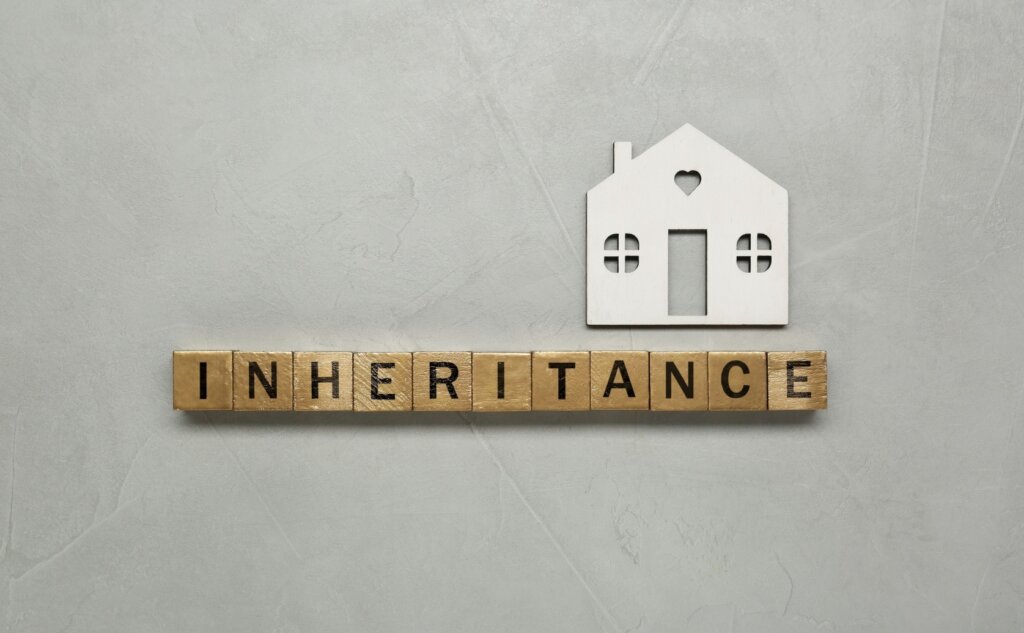Selling an inherited property can often feel overwhelming, especially when it comes to the legalities, condition of the home, and deciding the best way to sell. However, with the right information and steps, selling an inherited property in Tampa, FL can be done quickly and easily. This guide covers everything you need to know—from the legal process and property evaluation to how to find a buyer and close the deal.
Understanding the Legal Process of Selling an Inherited Property

Selling an inherited property in Tampa, FL requires understanding the legal steps involved. You must ensure you have the legal right to sell the property before listing it. Here’s what you need to know:
Probate Process in Florida
In Florida, the probate process is typically required to transfer property from the deceased person’s name to the heirs. The probate court ensures that all debts are settled and that the property is legally transferred. Depending on the situation, probate can take anywhere from a few months to over a year. However, if the estate is small or there are no complications, a simpler form of probate, such as “summary probate,” may apply.
| Step | Description |
|---|---|
| 1. Petition for Probate | Submit a petition to the probate court to begin the probate process. |
| 2. Appoint a Personal Representative | The court appoints an individual (executor) to manage the estate. |
| 3. Pay Debts and Taxes | All debts, taxes, and expenses of the deceased must be cleared. |
| 4. Transfer of Property | After debts are settled, the property can be transferred to the heir(s). |
| 5. Final Distribution | The estate is closed, and assets are distributed to heirs or beneficiaries. |
For more detailed information on the probate process and timeline in Florida, you can refer to this Florida Probate Process and Timeline Guide.
Confirm Ownership and Legal Rights
Before you can sell the inherited property, you need to confirm that you legally own it. If there is a will, you’ll need to provide it to prove that you are the rightful heir. If no will exists, Florida’s intestate laws will determine who inherits the property. You may need to file a petition with the probate court to confirm your right to sell.
Clear Outstanding Debts
Any debts, such as back property taxes, mortgage balances, or liens, must be resolved before you can sell the property. Failing to address outstanding debts can delay the selling process and could even result in foreclosure.
Evaluating the Property’s Condition

Once you have the legal right to sell the property, it’s time to evaluate its condition. The state of the house will greatly influence your decision on how to proceed.
Assess the Property’s Condition
Inherited properties may be in varying conditions, depending on how well the property was maintained. Here are the common conditions and their impact:
- Well-Maintained Property: If the house is in good condition, you may choose to list it traditionally on the market. A home in great condition can fetch a higher price and may be more appealing to buyers.
- Fixer-Upper: If the property needs significant repairs, it could be harder to sell through traditional methods. Repairing the home before listing it might be costly and time-consuming, but it could increase the property’s value.
- Vacant or Abandoned: Many inherited homes are abandoned or left vacant for extended periods. These homes often suffer from deferred maintenance, which could lead to issues such as mold, pest infestation, or structural damage. This will require either extensive repairs or a decision to sell the house as-is.
Getting a Professional Home Inspection
A professional home inspection can help you understand the property’s current condition and identify any hidden issues. Inspections typically cover:
- Roof and Foundation: The inspector will check for any leaks, cracks, or structural issues.
- Plumbing and Electrical: These are crucial components that need to function properly for safety.
- HVAC System: A well-maintained heating and cooling system can affect the sale price.
Deciding How to Sell the Property
Once you understand the legalities and the property’s condition, it’s time to decide how to sell the inherited home. You have several options to consider, each with its benefits and potential drawbacks:
Traditional Sale Through a Realtor
Selling the property through a realtor is the most common method, but it requires time and effort. Here are the steps:
- List the Property: Your realtor will market the property to potential buyers, which involves staging, taking professional photos, and hosting open houses.
- Negotiating Offers: You’ll review offers, negotiate terms, and accept the best one.
- Closing the Deal: After an offer is accepted, the closing process begins, which includes paperwork and finalizing the transfer of ownership.
Pros:
- Potential for a higher sale price if the property is in great condition.
- Access to a larger pool of buyers through MLS listings.
Cons:
- Takes longer (typically 30-60 days).
- Requires realtor commissions (usually 5-6% of the sale price).
- Property may not sell if it needs significant repairs.
Selling for Cash to Investors

A quicker option is to sell the property for cash to an investor. Investors are willing to buy homes in any condition, and this is ideal for those who need to sell quickly.
How It Works:
- You receive an offer based on the current market value and condition of the property.
- The closing process can be completed in as little as 7-14 days.
- The property is typically sold as-is, meaning no repairs or upgrades are needed.
Pros:
- Quick closing, often in a matter of days.
- No need for repairs, cleaning, or staging.
- Fewer fees, as there is no agent commission.
Cons:
- The sale price may be lower than if sold on the open market.
- Not all cash buyers are legitimate, so you must ensure you choose a reputable buyer.
Selling at Auction
If you need to sell quickly, consider auctioning the property. Auctions can expedite the sale process, but there’s no guarantee of the sale price.
Pros:
- Fast process with immediate offers.
- A great way to sell unique or hard-to-sell properties.
Cons:
- The final sale price might be lower than expected.
- Auctions can be unpredictable, and the property may not sell at all.
Selling the Property As-Is: The Fastest Option
If you’re looking for the quickest and easiest way to sell, consider selling your inherited property “as-is” to a cash buyer. This means you won’t need to make any repairs, clean, or stage the home. Cash buyers will purchase the property in its current state, regardless of damage or needed repairs.
Benefits of Selling As-Is
- No Repairs or Renovations Needed: Avoid the hassle and cost of fixing up the house.
- Quick Closing: Cash buyers typically close in 7-14 days, making it ideal for those who need to sell fast.
- No Hidden Fees: There are fewer fees when working with cash buyers, as you won’t need to pay agent commissions or closing costs.
Finding a Reliable Cash Buyer in Tampa, FL
If you choose to sell your inherited property for cash, it’s crucial to find a reliable and trustworthy buyer. Here are some tips to ensure you’re working with a reputable buyer:
Do Your Research
Check the buyer’s reputation online through reviews and ratings. Make sure the company is experienced in buying inherited homes and is transparent in their process.
Get Multiple Offers
To ensure you’re getting a fair price, it’s wise to get multiple offers from different buyers. This can help you assess whether the cash offer is competitive.
Avoid Scams
While most cash buyers are legitimate, some may try to take advantage of sellers. Be cautious of buyers who offer significantly more than the market value or pressure you to sell quickly without providing detailed terms.
For additional tips on how to avoid real estate scams, visit the FTC’s How to Avoid a Scam guide.
Closing the Sale: What to Expect
Once you’ve agreed to sell your inherited property, it’s time to go through the closing process. With a cash sale, the process is typically faster than traditional sales. Here’s what you can expect:
| Step | What to Expect |
|---|---|
| 1. Review the Offer | Read through the offer carefully and make sure all terms are clear. |
| 2. Title Search | The title company will check for any outstanding liens or claims on the property. |
| 3. Sign the Contract | Once everything is in order, you’ll sign the sales agreement. |
| 4. Close the Deal | On closing day, funds are transferred, and ownership is transferred. |
| 5. Receive Payment | You’ll receive your payment through check or wire transfer. |
What Happens After Closing?
After closing, the deed is transferred to the buyer, and you’ll receive your payment. The transaction is officially complete, and you are no longer responsible for the property.
Tax Implications of Selling an Inherited Property

Selling an inherited property has tax implications, particularly regarding capital gains taxes. Fortunately, inherited properties often benefit from a “step-up” in basis, which means the property’s value is adjusted to its market value at the time of inheritance.
Understanding Capital Gains Tax
- Step-Up in Basis: The property’s value is adjusted to the market value on the date of the decedent’s death. This can minimize the capital gains tax liability.
- Consult a Tax Advisor: It’s important to speak with a tax professional to understand your obligations and ensure you handle the sale correctly.
FAQs: How to Sell an Inherited Property Quickly and Easily in Tampa, FL?
Q1: How long does it take to sell an inherited property?
A1: Selling traditionally takes 30-60 days. A cash sale can close in 7-14 days.
Q2: Can I sell my inherited property without going through probate?
A2: Most properties go through probate. However, if there’s a trust or joint ownership, it might bypass probate.
Q3: Do I need to make repairs before selling?
A3: Not necessarily. If you sell as-is to a cash buyer, no repairs are needed. Traditional sales may require repairs to maximize price.
Q4: How do I find a trustworthy cash buyer in Tampa?
A4: Research local buyers, read reviews, and get multiple offers. Make sure the buyer is transparent and provides a fair price.
Q5: What taxes will I owe when selling an inherited property?
A5: Inherited properties typically benefit from a “step-up” in basis, reducing capital gains tax. Consult a tax advisor for details.
Q6: Can I sell an inherited property with debts or liens?
A6: Yes, but these debts must be settled before closing. The title company will help clear any outstanding obligations.
Selling Your Inherited Property in Tampa, FL
Selling an inherited property in Tampa, FL can be a smooth process if you approach it with the right knowledge and understanding. Whether you choose to sell through a traditional realtor, at auction, or to a cash buyer, each method offers unique advantages depending on your circumstances. If you need to sell quickly and avoid repairs, working with a reputable cash buyer is often the most efficient and hassle-free option. It provides the benefit of a fast closing, usually within 7-14 days, and the opportunity to sell the property as-is without additional costs or delays.
It’s essential to understand the legal process, especially probate, and to confirm your legal rights before proceeding with the sale. Additionally, evaluating the property’s condition will help you determine the most suitable selling method. Don’t forget to consult with professionals, such as real estate agents, investors, or tax advisors, to ensure you’re making the best decisions for your situation. By following these steps, you can confidently sell your inherited property in Tampa and move forward with ease.

